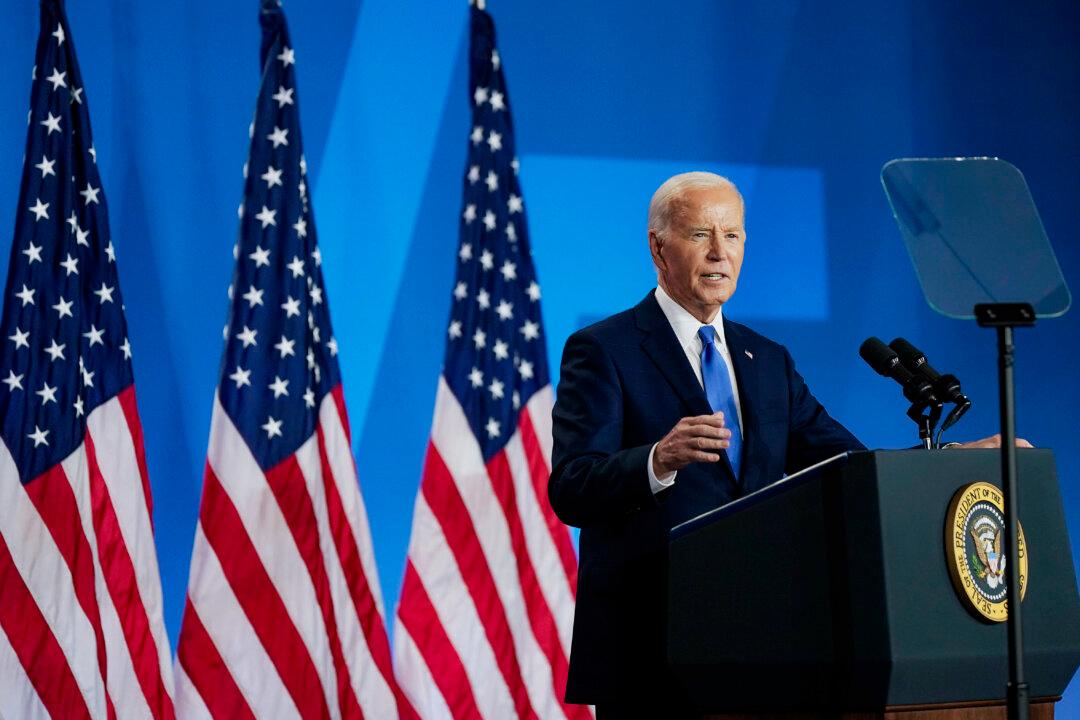The Democratic National Committee (DNC) intends to hold a virtual vote to nominate President Joe Biden, although the vote won’t take place before Aug. 1, according to Minnesota Gov. Tim Walz, who is the co-chair of the Democratic National Convention’s rules committee.
Speaking at a news conference in Milwaukee on July 17, Mr. Walz sought to address concerns about an early nomination. Some congressional Democrats expressed reservations about a rushed process to nominate President Biden for reelection, in a draft letter addressed to the DNC.






